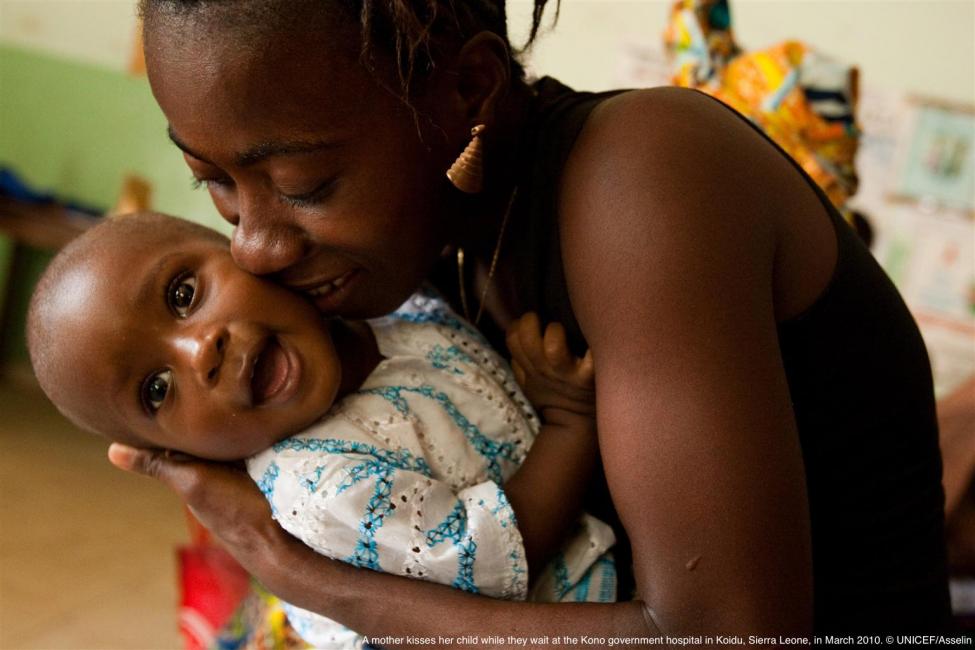The Network for Improving Quality of Care for Maternal, Newborn and Child Health (Quality of Care Network) held its 2nd meeting on Demonstrating accountability and learning from implementation on March 12-14, 2019, in Addis Ababa, Ethiopia. The participants in the meeting from twenty-two countries, national, regional and global partners, development organisations, NGOs, private sector, professional associations, academia and research institutions in the Quality of Care Network issued the following statement:
Committed to Quality, Equity and Dignity
Statement of the second meeting of the Network for Improving Quality of Care for Maternal, Newborn and Child Health
14 March 2019, Addis Ababa, Ethiopia
— Committing to the 2030 Sustainable Development Goal 3 (SDG3) to ‘ensure healthy lives and promote well-being for all at all ages’, to the Global Strategy for Women’s, Children’s and Adolescent’s Health, in particular the targets to end preventable maternal newborn and child mortality, to the principles of quality, equity and dignity, and to achieving universal health coverage;
— Acknowledging the findings and recommendations of the three reports on quality health systems: High-quality health systems in the Sustainable Development Goals era: time for a revolution by the Lancet Global Health Commission on High Quality Health Systems in the SDG Era; Crossing the Global Quality Chasm: Improving Health Care Worldwide, by the National Academies of Sciences, Engineering, and Medicine; and Delivering Quality Health Services: A Global Imperative for Universal Health Coverage, a joint publication by the World Health Organization (WHO), the Organisation for Economic Co-operation and Development (OECD), and the World Bank Group;
— Recognising the progress that the ten pathfinder countries, Bangladesh, Côte d’Ivoire, Ethiopia, Ghana, India, Malawi, Nigeria, Sierra Leone, Tanzania and Uganda, leading the Network for Improving Quality of Care for Maternal, Newborn and Child Health (Quality of Care Network) have made since its launch in February 2017 to put in place national structures and plans for quality of care, adapt, adopt and implement WHO’s standards for improving quality of maternal and newborn care and standards for improving the quality of care for children and young adolescents in health facilities, at the national, district and facility levels, and set up learning systems;
- Welcoming Kenya as the 11th country in the Network for Improving Quality of Care for Maternal, Newborn and Child Health;
- Welcoming eleven[i] new countries and countries from other regions[ii] interested to learn and be involved in institutionalising quality of care based on the strategic objectives of the Quality of Care Network;
- Reaffirming our commitment to the statement of the 1st meeting of the Quality of Care Network in February 2017 in Malawi;
- Acknowledging the challenges that countries are facing in scaling up and sustaining delivery of quality of care and reaching everyone, everywhere;
- Appreciating lessons learnt in the process of implementing quality improvement activities and encourage use of existing opportunities for further development;
- Recognising the growing role and the need to engage and work with the private sector beyond the public sector;
We, the participants in the second meeting of the Network for Improving Quality of Care for Maternal, Newborn and Child Health from twenty-two countries, national, regional and global partners, development organisations, NGOs, private sector, professional associations, academia and research institutions in the Quality of Care Network:
— Reaffirm our commitment to the goals of the Quality of Care Network to halve maternal and newborn deaths and stillbirths and improve the experience of care in participating facilities by 2022.
— And commit to:
- Continue to work under government leadership and in collaboration and coordination with key stakeholders including implementing partners, professional associations, private sector, academia, research institutions, civil society and communities to implement the national strategies and plans for improving quality in maternal, newborn and child health services, including adolescents, as per country priorities;
- Continue to align our efforts with national quality policies and strategies that provide a foundation for quality of care and improved health outcomes at all levels, with maternal, newborn and child health as a pathfinder;
- Continue to advocate and mobilise domestic and additional external financial resources to support implementation and sustainability of quality of care at scale;
- Support leaders and managers at facility, district and national levels in their efforts to implement quality of care and to provide on-site support to ensure that front line health workers acquire and maintain the clinical, Quality Improvement (QI) and management skills required, including QI skill development in pre-service training;
- Generate, collect, analyse and use data and implementation research to accurately identify what activities are leading to better care;
- Build national learning systems that facilitate documentation and learning in support of quality of care, while also contributing to exchange of best practices, expertise and experience through active participation in a global learning network;
- Commit to share what works and what does not work in implementing quality of care in Quality of Care Network countries;
- Strengthen advocacy for quality of care, including for respectful care at all levels;
- Engage communities, women and health providers, including through social accountability processes, in the design, implementation and assessment of programmes to improve quality of care;
- Identify and scale up the most effective models and innovations for sustainable implementation of quality of care, including efforts to improve water, sanitation and hygiene in health facilities.
— Finally, as members of the Quality of Care Network, we gratefully acknowledge the technical leadership and support of the World Health Organization, UNICEF and UNFPA, implementing and funding partners, to facilitate the Quality of Care Network, enable transformation in health and sustainable development for every woman, newborn, child and adolescent everywhere to survive and thrive.
[i] Botswana, Cameroon, Chad, DRC, Liberia, Mozambique, Namibia, Niger, Senegal, South Sudan, Sudan
[ii] Bhutan, Indonesia, Maldives, Myanmar, Sri Lanka and Timor-Leste


